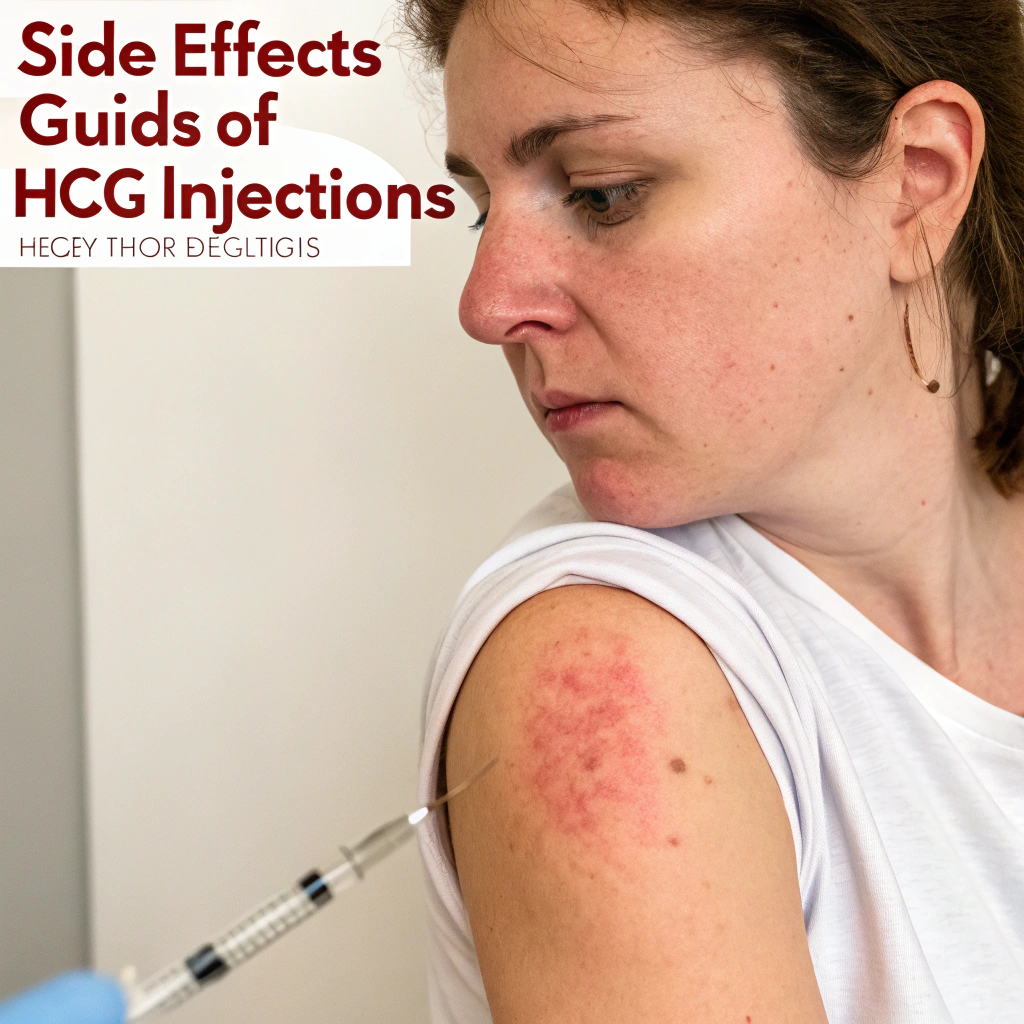What is HCG Injection?
HCG (Human Chorionic Gonadotropin) injections are medical treatments used for fertility issues and weight management. These injections contain hormones that support pregnancy and influence metabolism.
Common Side Effects
Users might experience headaches, fatigue, irritability, and restlessness. Mild pain or bruising at the injection site remains normal. Some people report breast tenderness, water retention, and mood changes during treatment.
Severe Side Effects
Serious reactions include severe abdominal pain, shortness of breath, and chest tightness. Blood clots, severe pelvic pain, and unusual swelling require immediate medical attention. Some patients experience severe allergic reactions with symptoms like rash, itching, and difficulty breathing.
Weight-Related Effects
HCG injections may cause temporary weight fluctuations. Some users report rapid weight changes, fluid retention, and changes in appetite patterns. These effects often stabilize after treatment completion.
Hormonal Impact
The treatment affects hormone levels, causing mood swings, depression, and anxiety in some cases. Men might experience breast enlargement or tenderness. Women often report menstrual irregularities and ovarian hyperstimulation.
Gastrointestinal Effects
Nausea, vomiting, and stomach discomfort are common during treatment. Some patients experience changes in bowel movements and digestive patterns. These symptoms usually resolve after completing the treatment course.
Skin Reactions
Local reactions at injection sites include redness, swelling, and itching. Some users develop rashes or hives across their body. Proper injection technique reduces these risks significantly.
Cardiovascular Effects
Blood pressure changes occur in some patients. Heart palpitations and irregular heartbeats need medical evaluation. The risk increases in patients with pre-existing heart conditions.
Neurological Impact
Headaches range from mild to severe during treatment. Some patients report dizziness and vision changes. Numbness or tingling sensations require medical assessment.
Long-Term Considerations
Extended use may affect fertility patterns and hormone balance. Regular medical monitoring helps prevent complications. Some effects might persist after treatment completion.
Risk Factors
Pre-existing medical conditions increase side effect risks. Age, weight, and overall health influence reaction severity. Previous hormone treatments may affect response patterns.
Prevention Measures
Proper storage and administration reduce side effects. Following prescribed dosages prevents complications. Regular medical check-ups help monitor treatment response.
When to Seek Medical Help
Severe pain or breathing difficulties require emergency care. Unusual swelling or persistent symptoms need evaluation. Any severe allergic reactions demand immediate medical attention.


